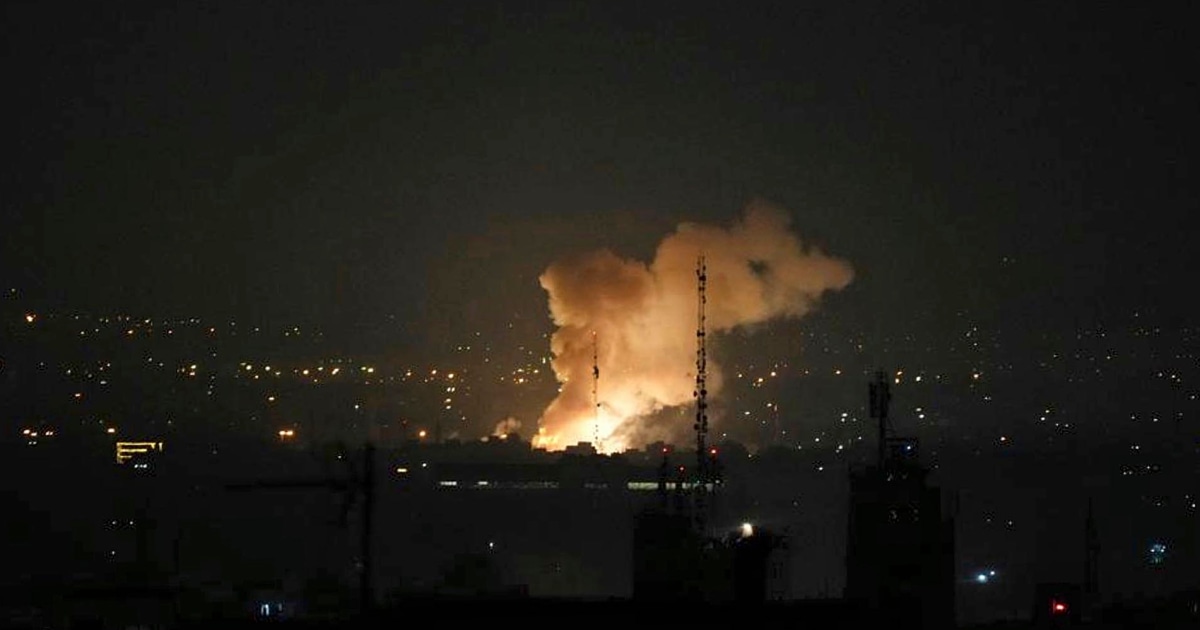Congressional Democrats Divided Over Israel’s Strikes on Iran
In the wake of Israel’s recent military action against Iran, congressional Democrats find themselves sharply divided regarding the implications of these strikes. The contrasting perspectives reflect a broader debate within the party about the U.S.’s role in global conflicts and how best to support allies while managing escalating tensions.
Support for Israel from Pro-Israel Democrats
A faction of Democrats continues to express unwavering support for Israel, considering its actions a necessary measure in light of perceived threats from Iran. Senator John Fetterman from Pennsylvania has emerged as one of the most prominent voices championing this stance. Following the attack on Israel on October 7, 2023, Fetterman has vocally defended Israel’s right to self-defense.
On social media platform X, he stated, "Our commitment to Israel must be absolute and I fully support this attack. Keep wiping out Iranian leadership and nuclear personnel. We must provide whatever is necessary—military, intelligence, weaponry—to fully back Israel in striking Iran." His assertion echoes a sentiment shared by several members of his caucus.
Voices of Support from Jewish Lawmakers
Jewish representatives within the Democratic Party have also rallied behind Israel. Notably, Rep. Debbie Wasserman Schultz of Florida reaffirmed her commitment to Israel’s defensive actions. She argued that if these strikes disrupt Iran’s nuclear program, it contributes to global safety. "If its strikes against Iran’s nuclear program are a set-back to the regime, then, we’ll all be safer," she wrote on X.
Rep. Josh Gottheimer from New Jersey echoed this sentiment, stating that the strikes are a legitimate act of self-defense. He referred to the long history of Iran’s violations of nuclear nonproliferation agreements, underlining the rationale behind Israel’s decisions.
Historical Context: Past Actions Against Nuclear Threats
Another member, Rep. Brad Schneider of Illinois, pointed to Israel’s historical actions in similar situations. He reminded his constituents of the 1981 bombing of Iraq’s Osirak reactor and the 2007 strike on Syria’s nuclear facilities, suggesting that those interventions ultimately benefited global security. "The world will again be grateful that Israel acted to prevent catastrophe," he noted, reinforcing the argument that proactive measures against nuclear threats can yield positive outcomes.
Opposition from Concerned Democrats
Conversely, a significant number of Democrats are raising alarms about the potential ramifications of Israel’s strikes. They argue that these actions not only escalate tensions in the region but also risk involving the United States in a wider conflict.
Senator Patty Murray from Washington, who serves as vice chair on the Appropriations Committee, voiced her apprehensions by labeling Israel’s attack as "a dangerous and unprecedented escalation." She cautioned that such actions jeopardize American servicemembers and increase the likelihood of civilian casualties.
Senator Chris Murphy from Connecticut expressed similar concerns on X, emphasizing that Prime Minister Netanyahu’s moves appear to undermine diplomatic efforts. He stated, "Netanyahu wasn’t trying to help diplomacy; he was trying to destroy diplomacy. How do we know? They reportedly targeted and killed Iran’s chief negotiator with Trump." This highlights a fear that the strikes represent more than just military action—they could be a significant blow to already fragile diplomatic relations.
Balancing Power in Foreign Policy
Representative Seth Moulton of Massachusetts, a veteran of the Iraq War, also cautioned against the potential fallout from Israel’s military strikes. He characterized the challenge of foreign policy as a delicate balance of "hard and soft power." Moulton acknowledged that while it’s early to fully assess the situation, he is wary that Israel’s approach might tip this balance and might inadvertently draw the United States into a broader Middle Eastern conflict.
Conclusion: A Party at a Crossroads
As responses to Israel’s strikes on Iran continue to unfold, congressional Democrats are finding themselves at a crossroads. The varying perspectives reflect not only individual beliefs but also a deeper ideological divide within the party regarding foreign policy, national security, and the role of diplomatic engagement versus military intervention. This ongoing debate is likely to shape party discourse as the situation develops and as lawmakers grapple with the complexities of international relations in a volatile geopolitical landscape.


